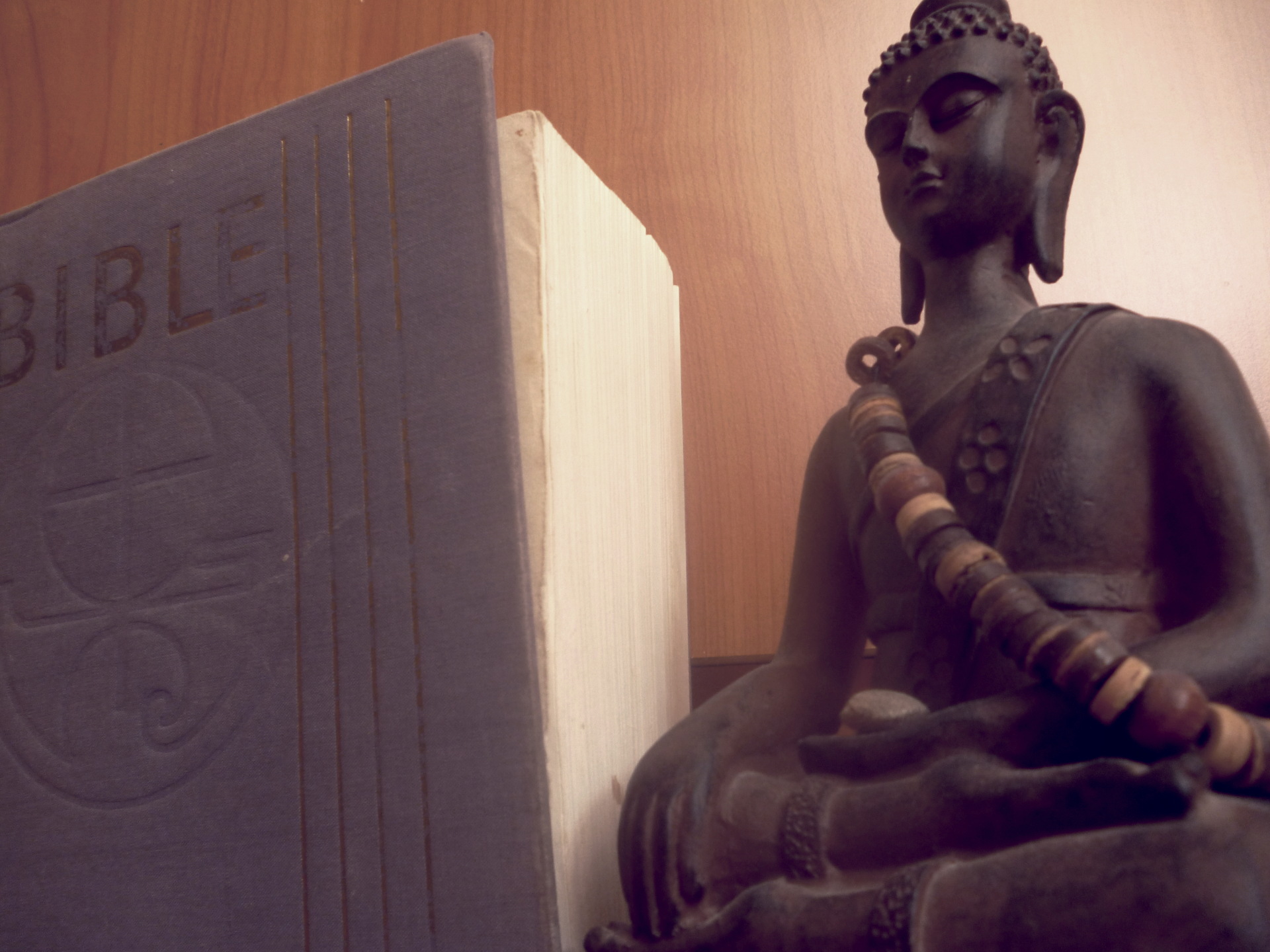Yoga Meditation Through Life - Kvetoslav Minarik
Recently, I have discovered books from Kvetoslav Minarik, a Czech yogi and mystic who sees yoga as the direct path to enlightenment. Nowadays most people imagine some headstands and lotus positions but according to Mr. Minarik, the most important part of yoga is the mind control which can eventually lead to freeing oneself from the cycle of reincarnation.
I found his teaching really helpful and it cleared many things for me. First, the spiritual path doesn’t mean abandoning the body or this world. Meditation is not and escape from the material world. During the meditation, one should actually watch his own mind and body. For example focusing on one body part and through this concentration becoming one with it and thus reaching the emptiness. Meditation is watching! Watching the thoughts, watching the body but not becoming a part of it. Asceticism is not just about sitting in a cave with no food. The true asceticism is about avoiding the thoughts that we enjoy but that lead to making us blind and strengthening the influence of our ego. When doing something bad or good, don’t become emotionally involved. Every emotion and every clinging creates a new karma or fate or another element on God’s judgment list. The goal however is not to keep getting rewards for the good deeds or getting punishment from the bad ones. It’s to get free of all of it while the good becomes our nature.
Eventually one loses the ego. The ego dissolves and one reaches the nirvana. This a big obstacle though. The ego controls us in many ways. At first it tries to bind us here in this world by wanting us to satisfy our needs, lusts and passions. Then when we walk down the spiritual path it tries to convince us we are better than the others, that our experience is unique and special. And when it’s close to the destruction it starts to defend with all it has. Fear so terrible that the stomach aches, the body becomes ill, people become paralyzed by it and rather return to the previous life without spirituality, trying to do as many activities as possible because the emptiness is so terrifying. However, it’s not. Emptiness means freeing ourselves from all the prejudice and expands our perception of everything. It allows us to objectively evaluate our own thoughts and actions, not being controlled by anything. Ego would do anything to avoid this though.
An interesting point of view form those books is that one of the main things on the path to enlightenment is to follow the moral laws. It is one of the most important things, event more important than the meditation techniques themselves because by cultivating our minds with the moral laws we will eventually naturally come to the meditation.
Anyway, Mr. Minarik’s works are much longer than this article so I would just like to write down some basic practical advices from the book Direct Path (remember that it also means to work on them in the world of thoughts, not only in our external behavior):
- Don’t harm anyone – to get rid of the fear
- Speak only the truth – to avoid confusion around you and inside you
- Don’t steal what’s not yours and avoid accepting gifts – to become independent and free
- Be patient – to be able to focus on your goal
- Be chaste – avoid sex when being single, be moderate if you have a partner (sexuality is one of the most powerful things that can bind us here in this world and it can even manifest in many different ways)
- Don’t judge anything – so you can see the truth behind
- Don’t talk needlessly – to be able to create the inner peace
- Asceticism - avoid inner reactions to anything you see, hear, feel…, keep one good mood, no matter what is happening around you
- Be firm – be a critic to yourself and analyze your thoughts but when you find it good, don’t hesitate and follow it with faith
- Stay simple and plain – no matter what you know, what you’ve reached or achieved, don’t talk about things that other can’t understand, rather adapt to their level when you need to talk to them
- Be humble - not underestimating but not feeling or acting superior
- Forgive – seek the good in everyone
- Charity – to get rid of the darkness
- Be kind – don’t do anything with aversion
- Poverty – work and live in the society but remember that the main purpose of your life is not to accumulate wealth
- Study – always look for the information and never avoid learning something new because ignorance is the cause of suffering
- Do not cling to anything – to get rid of the sadness caused by separation from your wishes
- Heal your body – especially mentally, many illnesses come from your mind
- Don’t be lazy – by staying active you can live the karma you need to live in order to get free of it
- Don’t doubt too much – doubting everything will make you throw away all the moral laws because of the need to try everything not matter what, getting proof to the proof of the proof and eventually getting lost
- Do not cling to you senses and material world - be sure to accept that you are limited by this existence so your perception of the world is never perfect
- Avoid false knowledge – don't accept everything right away but always analyze it first with no emotions
- Don’t look back on your spiritual path – accept the state you are in and aim further, everything will become clear even when you don’t understand right now
Good luck on your spiritual path….

Keywords: Buddhism,meditation,religion,yoga,spirituality,mysticism
#yoga #spirituality #meditation #yogameditation #spiritualpath
Privacy Terms